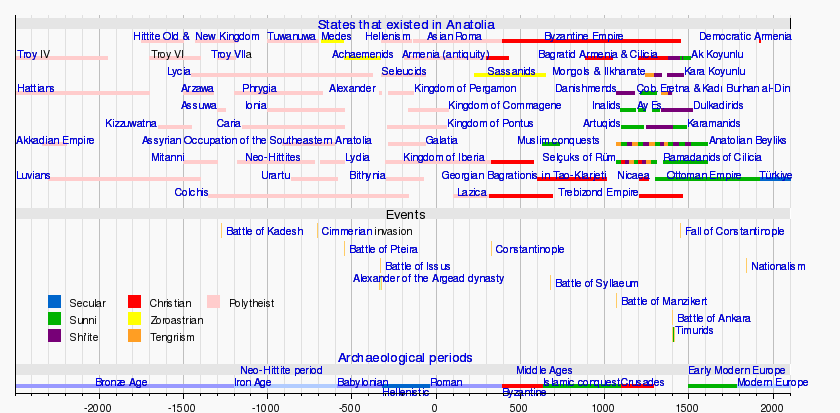Attalid dynasty
The Attalid dynasty // was a Hellenistic dynasty that ruled the city of Pergamon after the death of Lysimachus, a general of Alexander the Great. The Attalid kingdom was the rump state left after the collapse of the Lysimachian Empire. One of Lysimachus' officers, Philetaerus, took control of the city in 282 BC. The later Attalids were descended from his father, and they expanded the city into a kingdom. Attalus I proclaimed himself King in the 230s BC, following his victories over the Galatians. The Attalids ruled Pergamon until Attalus III bequeathed the kingdom to the Roman Republic in 133 BC[1] to avoid a likely succession crisis.
On the interior of the Pergamon Altar is a frieze depicting the life of Telephus, son of Herakles, whom the ruling Attalid dynasty associated with its city and utilized to claim descent from the Olympians. Pergamon, having entered the Greek world much later than its counterparts to the west, could not boast the same divine heritage as older city-states, and retroactively had to cultivate its place in Greek mythology.
Dynasty of Pergamon
Genealogy
Notes
- ↑ Shipley (2000) pp. 318-319.
Sources
- Shipley (2000). The Greek World After Alexander, 323-30 B.C.
- Hansen, Esther V. (1971). The Attalids of Pergamon. Ithaca, New York: Cornell University Press; London: Cornell University Press Ltd. ISBN 0-8014-0615-3.
- Kosmetatou, Elizabeth (2003) "The Attalids of Pergamon," in Andrew Erskine, ed., A Companion to the Hellenistic World. Oxford: Blackwell: pp. 159–174. ISBN 1-4051-3278-7. text
External links
|
|---|
| | | | | | | | | | | | |
-
 Category Category
-
 Portal Portal
-
 WikiProject WikiProject
|
|

 Media related to Attalid dynasty at Wikimedia Commons
Media related to Attalid dynasty at Wikimedia Commons
